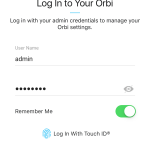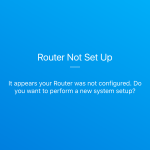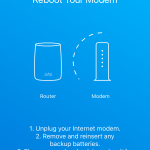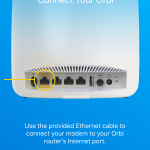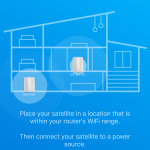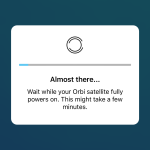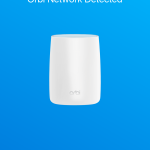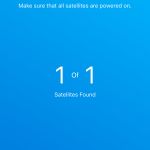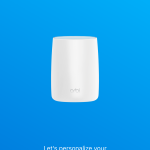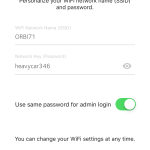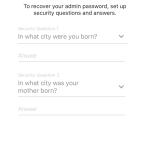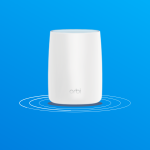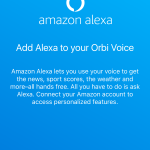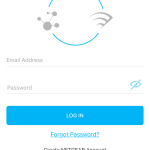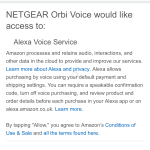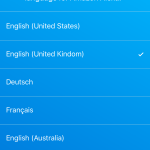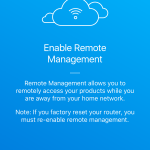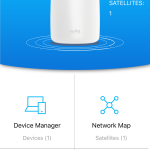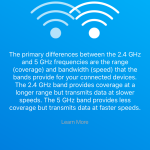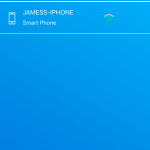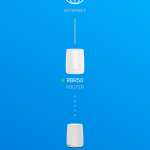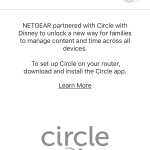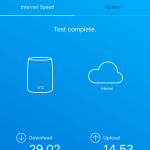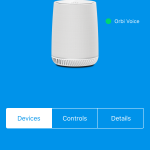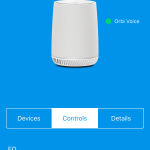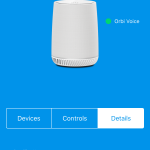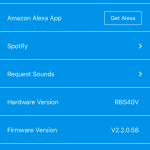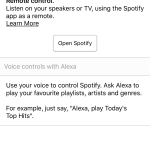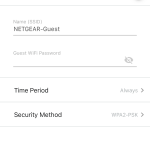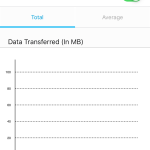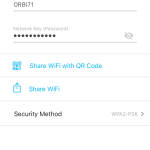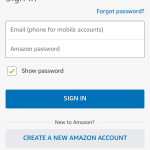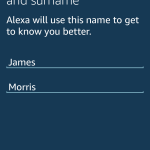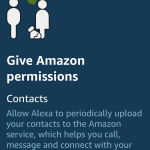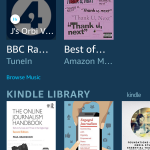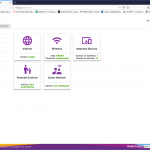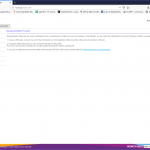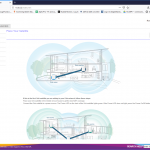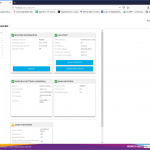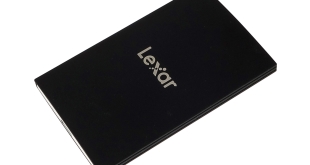The Orbi units come pre-paired, so you don't need to do anything to get the router and satellite talking to each other. You just need to plug them in, hook up the broadband to the router unit, and power everything on.
The router won't automatically connect to the Internet, however. So your next step is to download the NETGEAR Orbi smartphone app (for iOS or Android) and connect to the WiFi on the router. The SSID and password for this are indicated on a (removable) plastic strip on the to of the router. Once you've loaded the app, you're led through a wizard that finishes off the physical setup, makes satellite placement suggestions, provides the opportunity to change the WiFi and admin passwords, then finishes off the configuration. You're then prompted to extend your warranty, but you can skip that if you want.
At this point, your WiFi will work, but Alexa won't function yet. If you try to access it using the “Alexa” activation word, the Orbi Voice will inform you that it's not set up. So you will need to go through the wizard some more to connect the Orbi Voice's Alexa functionality to your Amazon account. You must also select a language to use, which currently includes US, UK, Canadian and Australian English, German, and French. More languages will be added, according to NETGEAR. Once you've completed this process, Alexa is ready to receive commands.
The NETGEAR smartphone app isn't just for configuring Alexa, however. It provides a decent set of administrative abilities too. Before you get there, you're asked whether you want to enable remote management. Then you're presented with a simple control interface. You can view the devices on the network and satellites on the WiFi mesh.
There are parental controls included, but only via the Disney Circle service, for which you will need to register. You can test your broadband speed. Then you get to the Voice Controls, which first lists the connected mobile devices. However, you can also add equalisation to your audio, using one of four presets or a custom configuration. The Details tab, however, unveils many more settings for the Alexa voice system.
Aside from some information about your Orbi Voice Satellite, the Details section also contains information about using Spotify on your smartphone as a remote and provides a connection to the Alexa smartphone app, which is required for further functionality. But, before we get to that, let's finish off covering the other features of the smartphone admin interface.
The final administration options include setting up a guest WiFi network, traffic monitoring, and general WiFi settings.
Even more functionality can be unlocked by installing the Amazon Alexa smartphone app. This takes you through a few general configuration settings, before ending up on the software's main interface. Here you can see some of the other abilities, such as reading your Kindle books to you, or playing radio stations via the TuneIn service. You also need to use the Alexa app to connect the Orbi Voice to your Spotify or Deezer account, allowing you to play all the music available here. You will need a premium Spotify account for this to work, however.
There is also a Web-based interface for the RBR50, but not a lot has changed here since our original review of the RBK50. The only big differences are the inclusion of ReadyShare so that the USB port on the router can be used for printer sharing, plus the ability to set up a guest network, and the option to add more than one satellite. The Advanced section hasn't changed much at all.
The Web administration features are nowhere near as extensive as NETGEAR's high-end standalone routers, such as the Nighthawk XR700 or X10 R9000. This is a more consumer-focused product, rather than one aimed at an expert looking to customise settings. But there's enough available for the home user who wants a little more than just to plug and play.
Once configured, the Alexa capabilities function as expected. If you've never used Alexa before, there is considerable initial fun to be had asking things like “what is the meaning of life” (42) or “what is Brexit?” (a much less amusing encyclopedia description). You can ask what the weather is, the results of mathematical equations and travel distances, but we couldn't get everything we asked for, such as traffic information, although there are optional “skills” you can enable to add this.
The music and audio abilities are impressive, however. Even without Spotify, you can listen to tracks on Amazon Music, and use TuneIn to play a wide selection of radio stations. Add in Spotify, and the faff involved with Bluetooth speakers starts to feel too much to bother with. You might not be able to get Alexa to understand every music command, such as playing an album that has the same name as one of its tracks, but you can use your smartphone to control playback instead in this situation.
Audio quality delivers on its promise too. As expected, it didn't quite match the KRK ROKIT 6 speakers in the lab. Aside from the lack of stereo, this is an unfair comparison anyway. But the Orbi Voice was also not so far off that an audiophile will be horrified. The bass is rich, the detail is audible, and the reproduction is faithful. The 35W capability can also be used right to its maximum without distortion. So if you want to use the Orbi Voice for a party, it has that potential.
Overall, then, the Orbi Voice is a capable Alexa wireless speaker system. But what about its mesh WiFi abilities? To clinch the deal, let's turn to performance testing.
Be sure to check out our sponsors store EKWB here
 KitGuru KitGuru.net – Tech News | Hardware News | Hardware Reviews | IOS | Mobile | Gaming | Graphics Cards
KitGuru KitGuru.net – Tech News | Hardware News | Hardware Reviews | IOS | Mobile | Gaming | Graphics Cards


